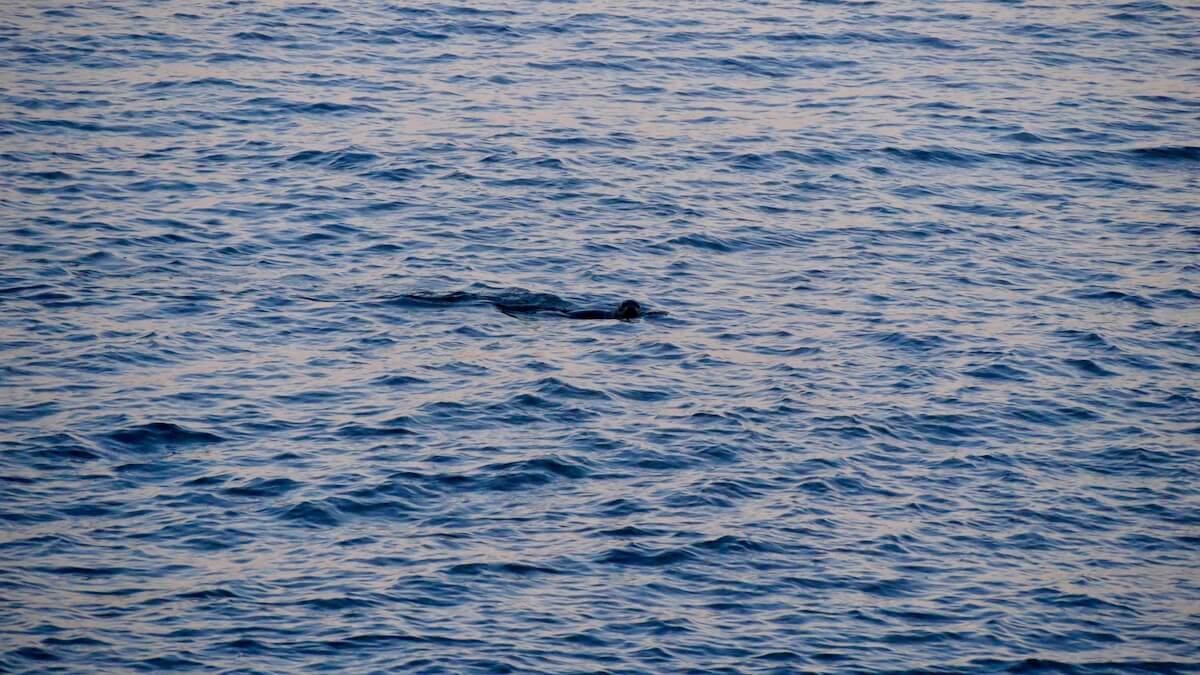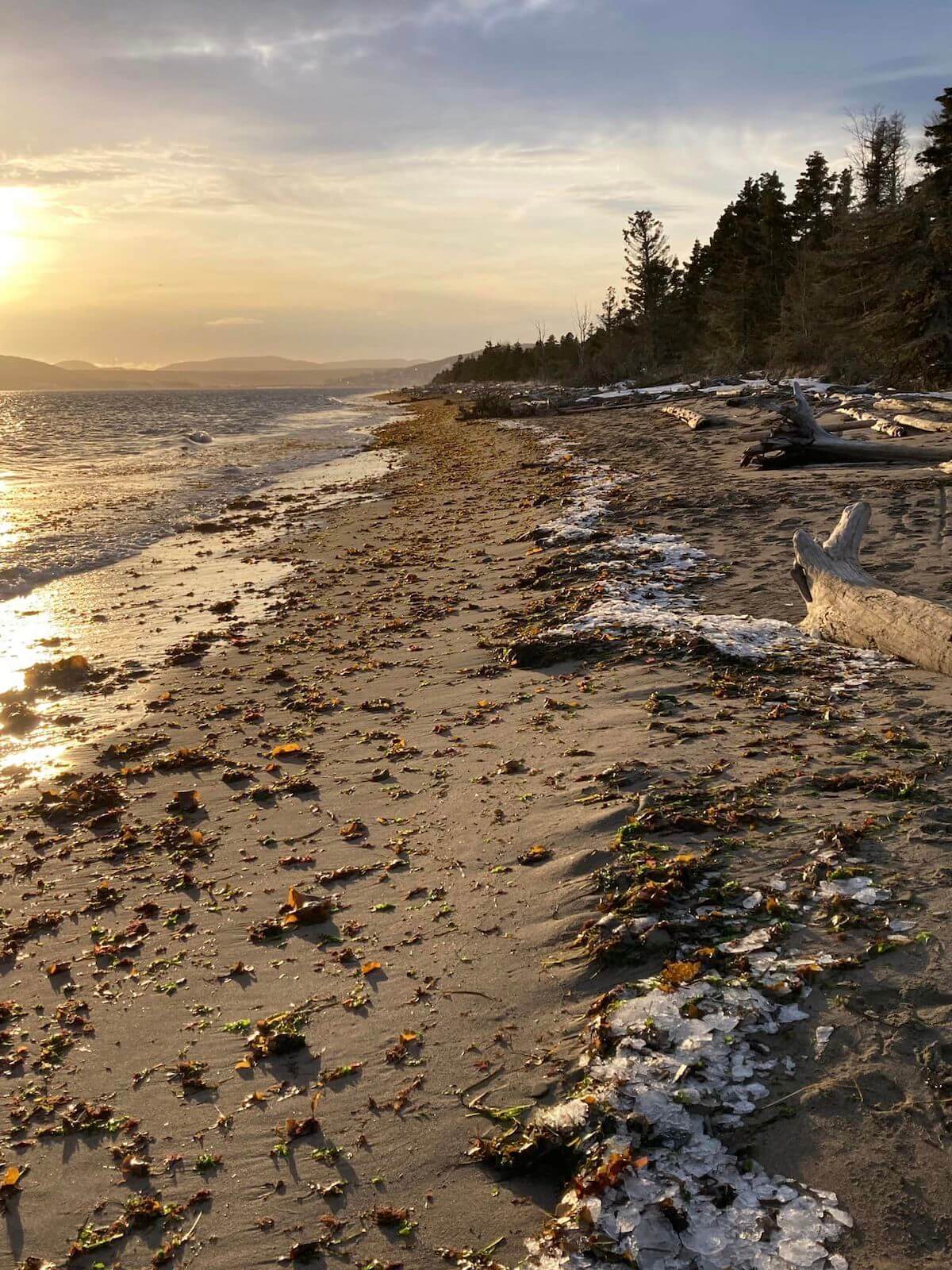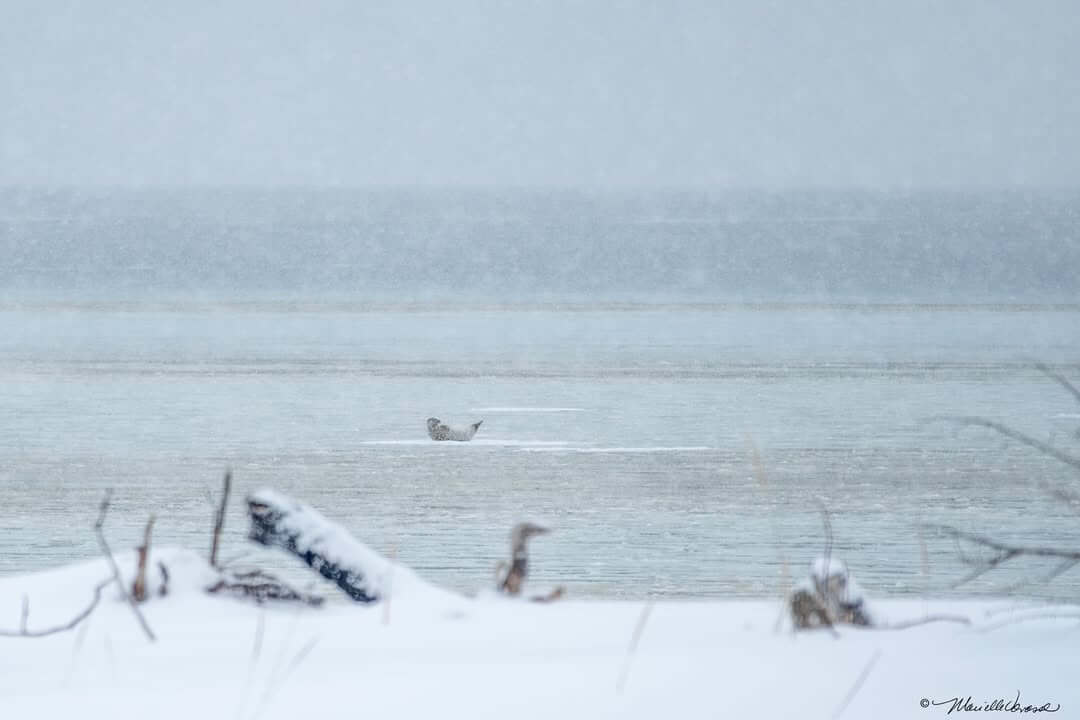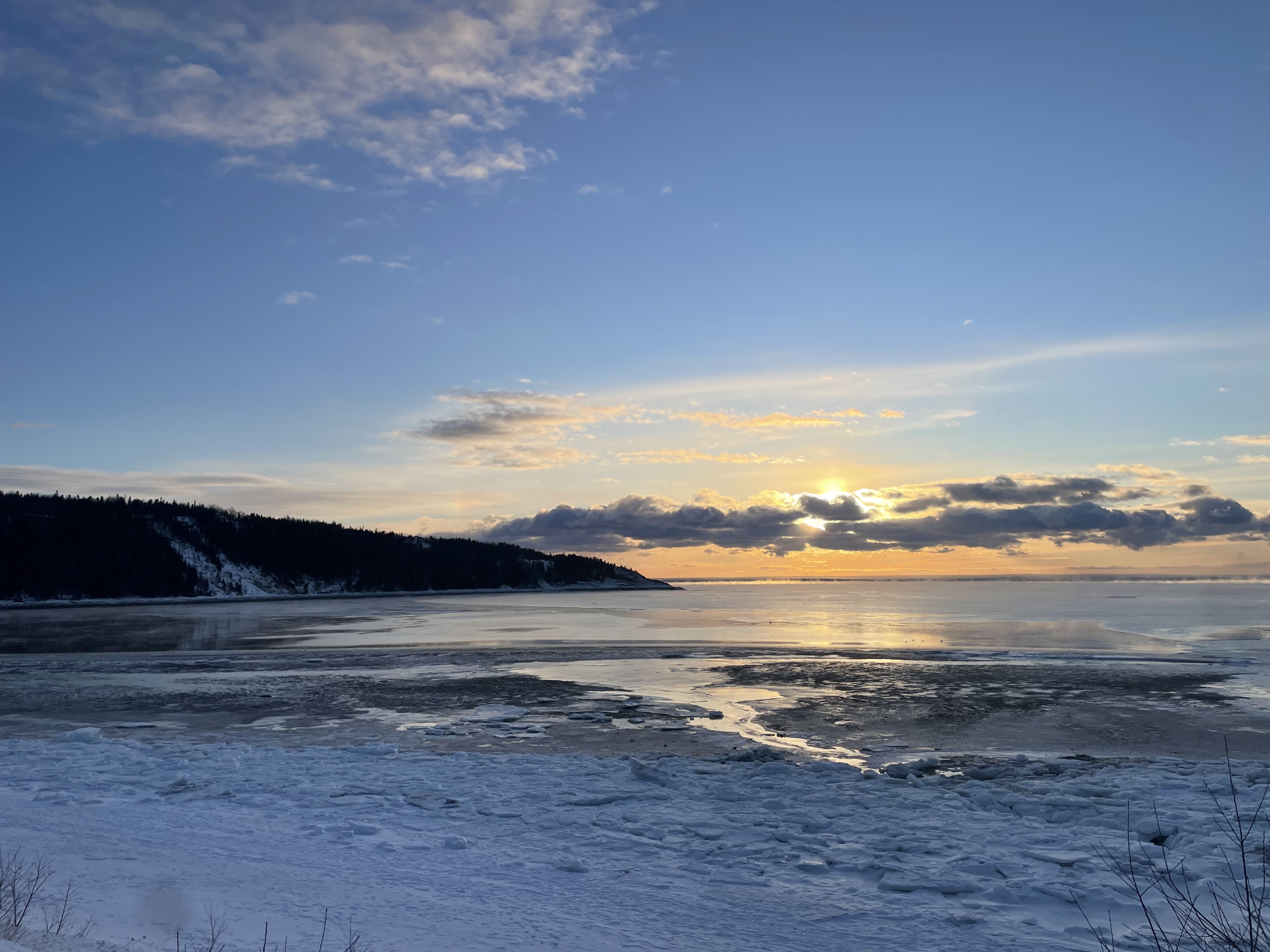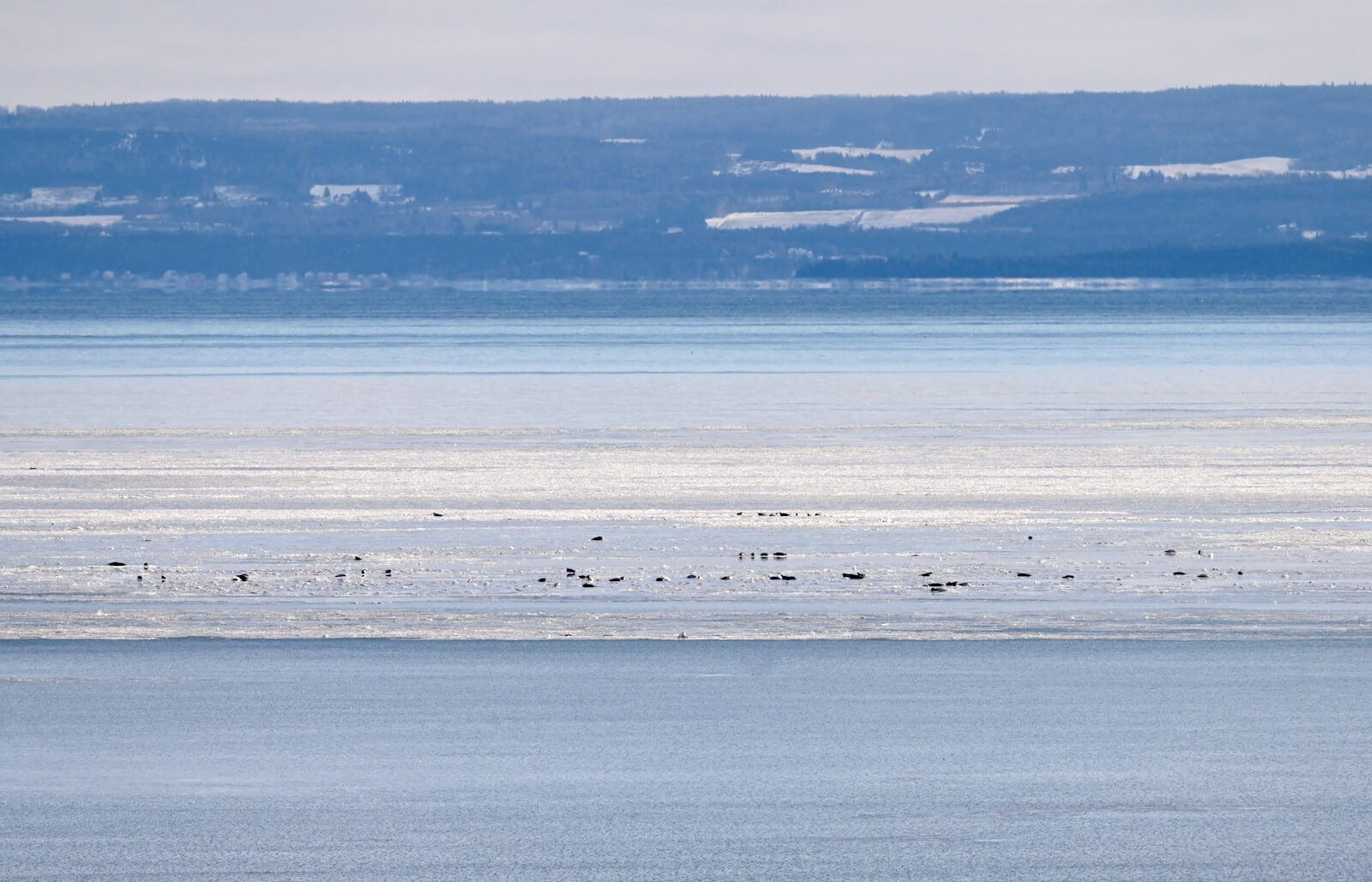This week, winter lovers were able to take advantage of the short, sunny days to admire seals, belugas, minke whales and humpbacks from the St. Lawrence shoreline. In other areas, marine mammal sightings were precluded by poor weather conditions.
Black heads, white backs
A few small black heads pierce the water surface in Saint-Siméon. To whom do they belong? Harbour seals! These year-round residents of the St. Lawrence are recognizable by their rounded heads, V-shaped nostrils and dog-like snouts. This coastal species is regularly observed near the shoreline.
At the mouth of the Saguenay Fjord, a minke whale came to feed on December 6 near Tadoussac, much to the delight of those who were there to observe it. Where the Saguenay flows into the St. Lawrence, between Tadoussac and Baie-Sainte-Catherine, a clear distinction between the two watercourses can be seen. These nutrient-rich waters attract many marine mammals. Belugas were also swimming in the area that day: “My first belugas of the winter,” exclaims one naturalist, “It was white on white.” As the only cetacean to reside in the St. Lawrence year-round, belugas are well adapted to survive our cold winters! They have a thick coat of blubber that helps them retain body heat, as well as a dorsal ridge in lieu of a fin, which reduces heat loss, enhances manoeuvrability and allows them to break through the ice cover.
Admiring marine mammals at the river’s edge
A French family vacationing on the North Shore reports seeing harbour seals and minke whales at Cap de Bon-Désir in Les Bergeronnes on December 4. These lucky folks were able to capture some great shots to remember these fortuitous encounters! In Les Escoumins, minke whales have been regularly coming to feed near the shore: “I saw one small gibard yesterday and two today,” mentions a St. Lawrence pilot.” This nickname used by French speakers for the smallest of baleen whales comes from the Latin gibbus, which translates as “humped one.”
A little farther east, in Franquelin, a humpback whale is stirring: “It was a big, beautiful humpback,” describes a marine mammal enthusiast. “She was performing deep dives and there were also three minke whales in the vicinity. There seem to be two humpbacks in the area as well as a few minkes.” In the Sept-Îles sector, weather conditions did not allow for the observation of cetaceans or pinnipeds, unfortunately. Whales are nevertheless present, regardless of the rain, wind or fog. However, the presence of ice on the shores of the St. Lawrence will ultimately result in fewer whales.
At the tip of the Gaspé Peninsula, viewing conditions for marine mammals have been favourable for land-based observers. A few harbour seals have been present in Gaspé Bay, while three humpback whales were spotted near Cap-Chat. Could these individuals be quietly heading toward their winter breeding grounds in the Caribbean? Impossible to say for sure, but it certainly is a possibility!
Share your observations!
Have you seen any marine mammals in the St. Lawrence? Whether it’s a spout offshore or just a couple of seals, drop us a line and send your photos to [email protected]!
Want to share your observations and contribute to citizen science? Use the marine mammal observation entry tool.


